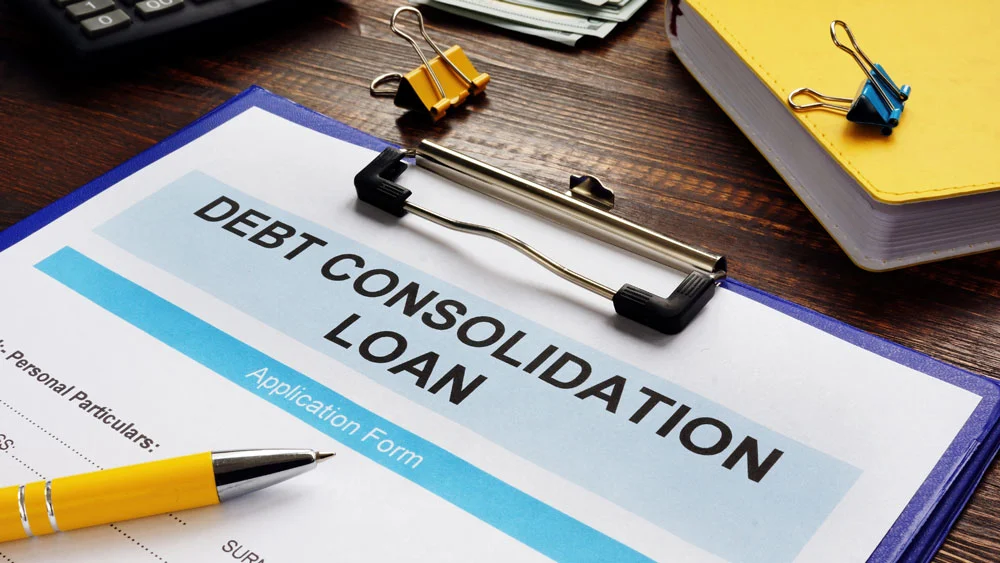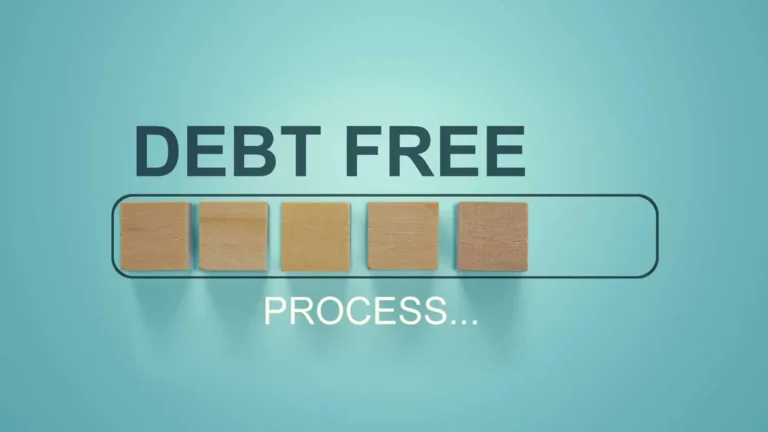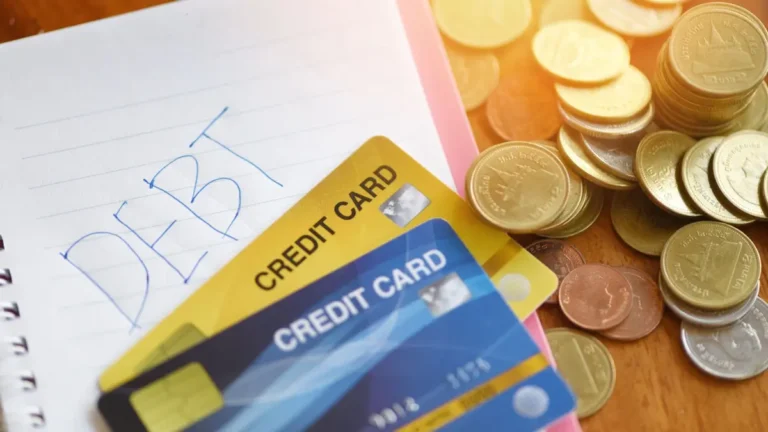Table of Content
- What is Debt Consolidation?
- Benefits of Debt Consolidation
- Understanding Unsecured Credit Facilities
- How Debt Consolidation Works
- Debt Consolidation Plan in Singapore
- Debt Consolidation Plan Details
- Advantages & Disadvantages of Debt Consolidation Loan
Are you drowning in a sea of debt and overwhelmed by multiple monthly loan payments? If so, you might have considered a debt consolidation loan a solution. But before you dive in, it’s crucial to clearly understand how debt consolidation works and whether it’s the right choice for your financial situation.
In Singapore, managing debt can challenge many individuals and families. Juggling various loans with different interest rates and payment schedules can make staying on top of your finances difficult.
Debt consolidation is a popular option that aims to simplify your debt repayment process by combining multiple debts into a single loan with a lower interest rate. A debt consolidation loan account is specifically created to manage these consolidated debts, making tracking and repaying your obligations easier.
Before you explore the option of a debt consolidation loan in Singapore, it’s essential to weigh the pros and cons, understand the eligibility criteria, and be aware of potential pitfalls. This comprehensive guide will walk you through everything you need to know about debt consolidation in Singapore, helping you make informed decisions to regain control of your financial future.
What is Debt Consolidation?
Debt consolidation is a financial strategy that combines multiple debts into one more manageable loan. It often involves taking out a new loan to pay off debts such as credit card balances, personal loans, or medical bills.
The purpose of debt consolidation is to simplify the repayment process and potentially reduce the overall cost of debt by securing a lower interest rate on the consolidated loan. The debt consolidation plan will be reflected in the individual’s credit bureau report and can impact their credit rating.
By consolidating debts into a single loan, borrowers can streamline their monthly payments and potentially lower their overall interest expenses. Instead of juggling multiple due dates and varying interest rates, they can make one monthly payment to the debt consolidation lender.
Benefits of Debt Consolidation
Managing multiple debts can be overwhelming and stressful, but debt consolidation provides a clear path to financial freedom. By understanding the advantages of consolidating your debts, you can make informed decisions to improve your financial health. Let’s explore the various benefits of debt consolidation and how it could positively impact your financial situation.
Simplified Financial Management
One of the primary advantages of debt consolidation is the simplification of your financial obligations. By consolidating your debts, you only have to remember one due date and payment amount each month. This reduces the risk of missed payments, which can lead to late fees and negatively impact your credit score.
Additionally, upon approval of the debt consolidation plan, existing unsecured credit facilities will be closed to streamline financial management.
Reduced Interest Rates and Fees
Consolidating multiple high-interest debts, especially credit card debts, into a single loan with a lower interest rate can lead to significant savings on interest payments. Lower interest rates mean more of your payment goes towards reducing the principal balance, allowing you to pay off your debt faster and more affordably. Additionally, the revolving credit facility provided as part of the debt consolidation plan has a credit limit of up to 1x your monthly income.
Improved Credit Score
Making timely payments on your consolidated debt is key to improving your creditworthiness. Consistent on-time payments demonstrate responsible financial behavior to credit bureaus, which can boost your credit score over time. An improved credit score enhances your ability to secure better loan terms, lower interest rates, and more favorable financial opportunities.
Learn How Effective Strategies Can Boost Your Credit Score
Understanding Unsecured Credit Facilities
What are Unsecured Credit Facilities?
Unsecured credit facilities are financial products that do not require collateral to secure the loan. This means the lender relies solely on the borrower’s creditworthiness and ability to repay the loan. Unsecured credit facilities can include various types of loans and credit products, such as credit cards, personal loans, education loans, and renovation loans.
Examples of Unsecured Credit Facilities
Credit Cards
A credit card is one of the most common unsecured credit facilities. When you use a credit card, you borrow money from the card issuer to make purchases. The card issuer sets a credit limit, the maximum amount you can borrow. Credit cards typically have high interest rates, so paying off the balance in full each month is important to avoid accumulating debt.
Personal Loans
Another example of an unsecured credit facility is a personal loan. Personal loans are typically used for large expenses, such as medical bills, home repairs, or debt consolidation. These loans are not backed by collateral, so the lender relies on the borrower’s credit score and income to determine eligibility and interest rates. Personal loans usually have fixed interest rates and repayment terms.
Education Loans
Education loans are unsecured loans specifically designed to cover education expenses, such as tuition, books, and living expenses. Students or their parents typically take out these loans and do not require any collateral. Education loans may have lower interest rates than other unsecured credit facilities, and repayment typically begins after the borrower finishes their education.
It is important to note that education loans are excluded from the Debt Consolidation Plan (DCP) and cannot be consolidated under this scheme.
Renovation Loans
Renovation loans are unsecured credit facilities used to fund home improvement projects. These loans allow homeowners to make upgrades or repairs to their property without having to provide collateral. Renovation loans can vary in interest rates, repayment terms, and maximum loan amounts, so it’s essential to research and compare different loan options before deciding on one.
How Debt Consolidation Works
Debt consolidation is a financial strategy that combines multiple debts into a single, more manageable loan. This can be particularly helpful for individuals with multiple high-interest debts, such as credit card debt, who struggle to keep up with the payments. By consolidating their debts into one loan with a lower interest rate, individuals can save on interest and simplify their debt repayment process.
Here’s how debt consolidation works:
Assess Your Debts:
The first step in debt consolidation is to take stock of all your debts. This includes credit card debt, personal loans, medical bills, and other outstanding loans. Make a list of each debt, including the amount owed, the interest rate, and the monthly payment.
Choose a Debt Consolidation Method:
There are several ways to consolidate debt, including taking out a personal loan, using a balance transfer credit card, or working with a debt consolidation company. Each method has pros and cons, so it’s essential to research and choose the option that best suits your financial situation.
Apply for a Debt Consolidation Loan:
If you decide to take out a personal loan to consolidate your debts, you must apply for a loan with a bank, credit union, or online lender. The lender will review your credit score, income, and other financial information to determine if you qualify for a loan and at what interest rate.
Use the Loan to Pay Off Your Debts:
Once a debt consolidation loan is approved, you can use the funds to pay off your debts. This will leave you with only one loan to repay, simplifying your monthly payments and potentially lowering your overall interest costs.
Make On-Time Payments:
After consolidating your debts, it is important to make on-time payments on your new loan. By staying current on your payments, you can improve your credit score and avoid further financial trouble.
Debt Consolidation Plan in Singapore
Managing multiple debts can be overwhelming and stressful. For individuals in Singapore struggling with multiple unsecured credit facilities, a Debt Consolidation Plan can be a helpful solution.
What is a Debt Consolidation Plan?
So, what exactly is a Debt Consolidation Plan (DCP)? A DCP is a debt refinancing program that allows individuals to consolidate all their unsecured credit facilities from various financial institutions into one facility with a participating financial institution. By consolidating all debts into one, borrowers can simplify their repayments and potentially lower their interest rates.
Who is eligible for a Debt Consolidation Plan in Singapore?
- To be eligible, borrowers must have a net personal asset and meet the stated income criteria. Their net personal assets must be below a certain threshold, determined by subtracting their liabilities from their total assets.
- Borrowers with interest-bearing unsecured debt exceeding 12 times their monthly income may be
Debt Consolidation Plan Details
Debt consolidation can be a viable solution for individuals struggling to manage multiple debts. By combining all debts into one loan, borrowers can simplify their repayment process and save money on interest charges. However, before diving into a debt consolidation plan, it’s essential to understand the details, costs, and fees associated with such a plan.
Cost & Fees
- Processing Fees: Processing fees are one of the key considerations when exploring debt consolidation options. While some banks may offer zero processing fees, others may charge a fee that ranges from S$99 to S$600. It’s crucial to factor in these costs when evaluating the overall savings and benefits of consolidating your debts.
- Annual Interest Rate (AIR) & Effective Interest Rate (EIR): Another important aspect is the debt consolidation loan’s Annual Interest Rate (AIR) and Effective Interest Rate (EIR). The AIR represents the annual cost of borrowing, while the EIR provides a more accurate picture of the total cost by including additional fees. Understanding these rates can help borrowers make informed decisions about the affordability and sustainability of the debt consolidation plan.
Application Process and Approval Timeline
The application process for a Debt Consolidation Plan typically involves submitting various documents, such as proof of income, outstanding balances, and other financial information. Borrowers can apply for a plan with any participating bank or financial institution, and approval timelines may vary depending on the lender’s internal processes.
It’s important for borrowers to carefully review the terms and conditions of the debt consolidation plan, including interest rates, repayment terms, and any additional fees. Comparing multiple offers from different lenders can help individuals find the most competitive and suitable plan for their financial needs.
Advantages & Disadvantages of Debt Consolidation Loan
Consolidating multiple debts into a single loan with a lower interest rate and monthly payment can be a smart financial move for many individuals. However, as with any financial decision, there are advantages and disadvantages before pursuing debt consolidation.
Advantages:
- Simplified Finances: By consolidating multiple debts into one loan, individuals can simplify their finances with just one monthly payment to manage. This can help reduce the stress of juggling multiple due dates and varying interest rates.
- Lower Interest Rates and Fees: Debt consolidation loans often come with lower interest rates and fees than the individual unsecured credit facilities being consolidated. This can result in significant savings over time.
- Improved Credit Rating: Making timely payments on a debt consolidation loan can improve an individual’s credit rating. Consistently paying on time shows lenders that the individual is responsible and can be trusted with credit.
Disadvantages:
- Higher Monthly Payments: A debt consolidation loan can result in lower interest rates but may also come with higher monthly payments. This can be challenging for borrowers struggling to make minimum payments on their credit cards or other debts.
- Risk of Debt Accumulation: Individuals who consolidate their debts may risk accumulating more debt without proper financial discipline. If they continue to use their credit cards or take out additional loans, they could find themselves in a worse financial situation than before.
- Damage to Credit Score: Failing to make timely payments on a debt consolidation loan can damage an individual’s credit score. This can make securing favorable interest rates on future loans or credit cards more difficult.
Conclusion
In conclusion, a debt consolidation loan can be a practical solution for individuals looking to simplify their finances and reduce the burden of multiple debts. By combining all debts into one manageable monthly payment, borrowers can potentially lower their overall interest rates and save money in the long run.
However, it is crucial for individuals to carefully consider their financial situation, shop around for the best terms and rates, and create a realistic repayment plan to ensure that a debt consolidation loan is the right choice for them. Proper research and financial planning are key to making the most of a debt consolidation loan.
Understanding Debt Consolidation with EDUdebt
While we don’t offer DCP loans at EDUdebt, if you’re exploring debt consolidation and aren’t sure which program might be right for you, we’re here to help. We invite you to take advantage of a free consultation with our experienced consultants, who can guide you through your options and help you find a suitable program.
We will assist you in comparing all applicable consolidation programs and suggest which fits you best.
By working with EDUdebt, you can create a structured repayment plan tailored to your financial situation, making your journey toward financial stability more manageable.
Take the first step towards managing your debt today. Visit EDUdebt to schedule a complimentary consultation and start shaping a debt-free future. Let us help you turn financial challenges into opportunities with effective solutions tailored to your situation.
Connect with EDUdebt now and take control of your financial destiny!




